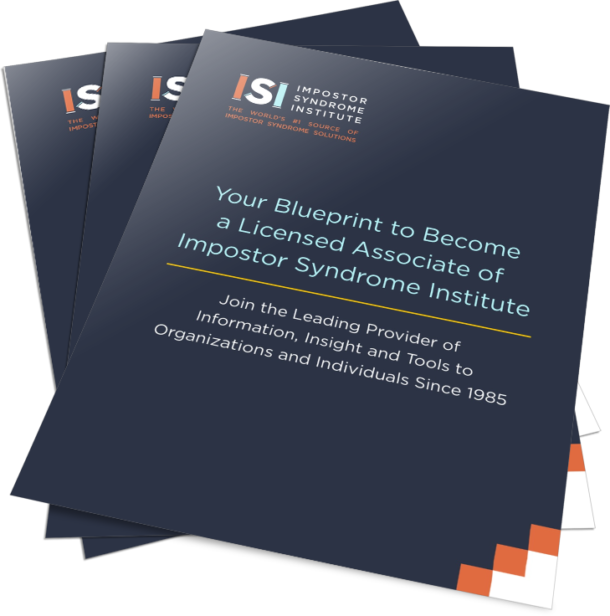Feeling Like a Fraud
Wednesday, June 2, 2004
By Susan Pinker, Special to The Globe and Mail
When Prof. Monique Frize was offered a prestigious academic research chair on women in engineering, her first reaction was a sense of foreboding, not pride.
Despite past successes as a biomedical engineer in Montreal and as head of biomedical services for New Brunswick’s hospital system, the professor of engineering at both the University of Ottawa and Carleton University in Ottawa felt unprepared for what others described as “a superwoman job” — and feared she’d be uncovered as a fake.
“I told my husband that I’d be an impostor to accept this job. But then I succeeded so incredibly that the traditional men around me began asking me, ‘When is enough going to be enough?’ “
Apparently never. Since that appointment, Prof. Frize has been awarded four honorary degrees and an Order of Canada and is now writing a book on women in engineering.
Yet she still experiences self-doubt when facing a big new project. “I’ve always had [fears of being unmasked] before a new responsibility. After six months, I would start to feel better. I knew how good it could be. But the feelings came back every time there was a new challenge,” she says.
Prof. Frize suffers from “impostor syndrome,” according to Valerie Young, a Massachusetts-based educator and speaker on the subject. First identified in 1978 by Georgia State University psychology professor Pauline Rose Clance and psychologist Suzanne Imes, impostors are high achievers who don’t believe in their accomplishments, are convinced they’re scamming everyone about their skills and will eventually be uncovered — evidence to the contrary be damned.
The two first noticed the phenomenon at Ohio’s Oberlin College in the early 1970s, where they worked with a group of top students who worried about flunking out despite excellent grades.
Even though it’s been 30 years, Dr. Clance, now a professor emeritus, says she has recently been seeing increasing demand for her clinical and consulting work and receiving more interview and workshop requests on the issue. “I wish it weren’t still relevant.”
But it is. While many actors suffer from impostor syndrome — an occupational hazard of earning your living by pretending — they don’t have a monopoly on it.
“The impostor syndrome is surprisingly common,” Dr. Young says. “Early studies suggest that up to 70 percent of all people have experienced these feelings at one time or another, especially when starting a new job or pioneering in a field.”
And “about 30 percent have it to the degree that it interferes with their work and their life,” Dr. Clance says.
Impostors play down their accomplishments, attributing them to luck or external factors instead of their own abilities. The result: increased anxiety about work and decreased appetite for risk, she says.
This can have a chilling effect on their careers, prompting those with strong impostor feelings to avoid promotions and new opportunities. Not only do such sufferers face career stagnation but their employers don’t fully benefit from their abilities and expertise. Impostor syndrome is also linked to depression, Dr. Clance says. “Lots of times, impostor syndrome limits how high people can go.”
One of the features of the syndrome is that impostors never outgrow their fear of discovery, and never feel truly comfortable in their occupational roles, says Julie Norem, a professor of psychology at Wellesley College in Boston.
“They’re not enjoying themselves, they’re not getting much satisfaction, even though they’re performing well. And their fear that they’ll be discovered really interferes with their friendships.”
Yet, here’s an irony: While impostors may not be getting much satisfaction or enjoyment from their achievements, strategies some use to compensate for their feelings of inadequacy — over preparing and out-credentialing their peers — may actually be responsible for their successes in the workplace, she says.
Of course, many people feel that they’re not smart enough or expert enough now and then.
What differentiates the syndrome from garden-variety self-doubt is that the feelings may wane over time but never entirely disappear, despite growing accolades or achievements, Prof. Norem says. They have to keep trying to satisfy a skeptical judge with impossible standards: themselves.
“Everything I achieved was a fluke,” is how Terry-Nan Tannenbaum, a public health physician and assistant director of Montreal’s infectious disease unit, used to think. “I’m so much aware of all the things I don’t know.”
Even famous impostors admit to dreading the day others realize the awful truth they knew all along. “I still think people will find out that I’m really not very talented. I’m really not very good. It’s all been a big sham,” said actress Michelle Pfeiffer in a 2002 interview with imdb.com, a film-industry website. In Interview magazine, actress Kate Winslet is quoted as saying, “Sometimes I wake up in the morning before going off to a shoot, and I think, I can’t do this. I’m a fraud. They’re going to fire me.”
Dr. Tannenbaum, recalling how impostor feelings were strongest early in her career, describes how she attempted to avoid risks where she might have felt exposed, yet might also have excelled. “At first, each step was safe. I didn’t put myself in situations where [feeling like a fake] could be proved true, and wouldn’t do something or apply for something unless I knew I was going to get it. It was only when I knew I could deal with failure that I started to take risks.”
For Perle Feldman, a Montreal family physician, assistant professor of family medicine at McGill University and self-described impostor, the fears of being discovered drive her to seek extra training, publish more and seek out more and more credentials. “I’m still waiting for them, the big ‘they,’ to figure it out. You’re ready for someone to say, you’re not who you think you are, for someone in the audience to stand up and yell, ‘fraud’. “
The phenomenon was first thought to be a gender issue because Dr. Clance and Dr. Imes identified it in 150 highly successful professional women and graduate students. But they and other experts have discovered that both women and men are susceptible, though men are less likely to talk about it. Where the gender card is relevant is that impostors of both sexes seem to feel strongly bound by sex-role stereotypes, says Prof. Norem, who has incorporated the notion of impostor syndrome into her research on negative thinking.
“When these women think about their ‘ought selves,’ they think of someone stereotypically feminine. But their ideal selves are in terms of achievement. What they ought to feel makes them feel depressed, but if they move toward their ideal selves, they feel guilty. So they’re trapped.”
She adds that men might feel very nurturing but are unable to demonstrate that quality in the workplace and so feel stuck playing a role they feel is not genuine. “So they’re convinced that what others see is not real.”
So how do impostors overcome the problems that go with their fear of being a fake? The strategy that actually helps breed success in the workplace is what Prof. Norem calls defensive pessimism — having unrealistically low expectations, and then devoting considerable energy to anticipating everything that could go wrong.
Mentally playing through every negative outcome helps impostors reduce anxiety because they move to concrete steps they can take. “This helps impostors feel that there’s something they can do. The impostors who use this strategy are more satisfied with their lives and show more improvement with their self-esteem,” she says.
And it does help to identify what you’re experiencing, the experts say. “Knowing there’s a name for these feelings and that you’re not alone can be tremendously freeing,” Dr. Young says, adding that separating feelings from the facts of your achievements comes next.
To do this, Dr. Clance suggests seeking out trusted friends or mentors, and listening to their feedback. “If you can’t find a trusted coach or mentor in the workplace, go to a professional who knows about this, like a therapist or an executive coach, and make sure it’s a confidential relationship,” she says.
“In coaching them through these feelings, they are not only able to take on new opportunities, they internalize that they are doing well enough, that they are doing fine.”
Indeed, when impostors acknowledge their feelings, they can be role models for others, Prof. Frize says. “When a female president of a university talked about feeling like an impostor in a public speech to 200 women scientists, we were all nodding, thinking of ourselves, thinking, ‘Oh my God, even her,’ “ she says.
Dr. Tannenbaum says learning about the phenomenon was therapeutic. “Part of it was finding out what it was, that it was a syndrome. That helped,” she says, recalling her moment of epiphany when another professional handed her a pile of academic papers on the subject. Though her feelings of being a fake have faded as she’s gotten older, they have not disappeared.
“I’m always carrying around a pile of articles I have to read. I’m only slowly getting used to giving talks. I absolutely overprepare and look up every reference,” she says.
The feeling of never really knowing enough may be why Dr. Feldman was spending a recent Sunday morning checking on patients in hospital, then writing a university admissions essay.
Twenty years of experience, a full clinical practice and a series of publications and awards are not enough. She is applying for a master’s degree in medical education to follow up a fellowship she just completed at Harvard University.
“I do want to do it, but I’m scared. These new people don’t know me and they’re going to figure it out and say ‘Fraud, get out! You don’t deserve to be here.’ “
| Do you have impostor syndrome?Ponder these statements to see if you’re a sufferer:
You’re not as smart and capable as everyone thinks you are. You’re just pretending. Read one more book, get one more degree or work at one more job before considering yourself qualified. Never put yourself in positions where you may not succeed. Don’t take on challenges where you might be exposed. Always remind yourself and others of how much you really don’t know. Always compare yourselves with other people. All work should be done perfectly so they won’t know you’re just faking it. Your job or promotion or school admission was only a matter of being in the right place at the right time. Always anticipate problems before they occur. Never make mistakes. Don’t believe compliments, especially from friends and family. Explain why you’re not deserving. Play down accomplishments. You fooled them this time, but maybe you won’t be so lucky next time. Your successes are due to chance. Your mistakes prove you were faking it all along. Adapted from educator Valerie Young’s workshop on impostor syndrome. |
Overcome impostor syndromeWhat helps? Here are some tips culled from the experts:
Find a trusted friend, mentor or proven coach to use as a sounding board. When they give you positive feedback, take it to heart. |


